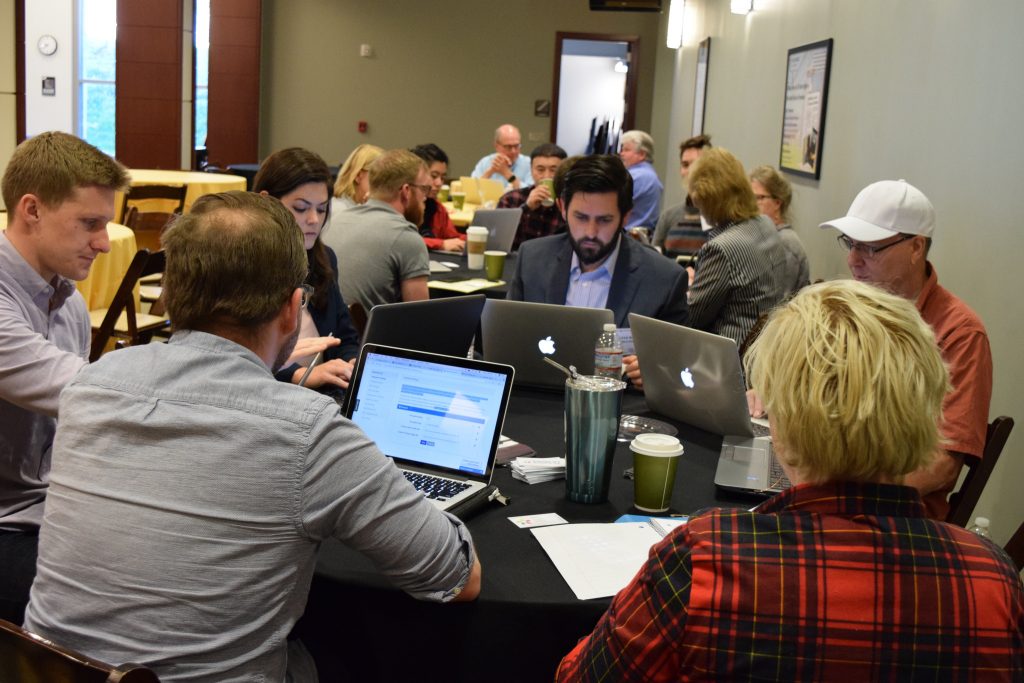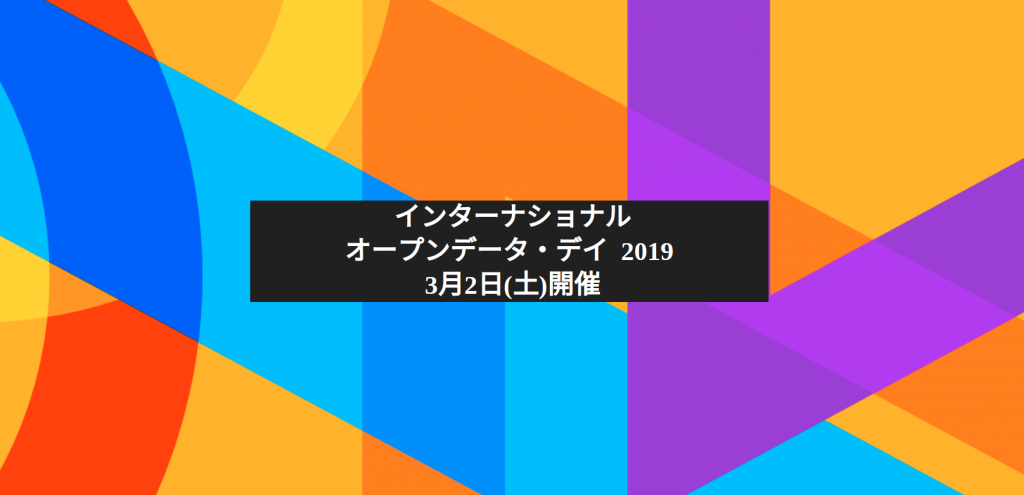Ahead of Open Data Day on Saturday 2nd March 2019, Tomoaki Watanabe from our Japanese chapter Open Knowledge Japan shares more information on a tool they developed to facilitate dealing with intellectual property (IP) rights during hackathon events. This year, many Open Data Day events are planned in Japan: Open Knowledge Japan created an overview at https://odd.okfn.jp/.
The main idea is simple: a tool to facilitate consensus formation on the intellectual property (IP) rights in the materials generated out of a hackathon. That is so that interested participants, or even others, know that they can develop a promising project further after the event is over.
You would see many gems generated at a hackathon: interesting projects, promising products and services, inspiring ideas, sketches, mockups and so on. The excitement and the passion it produces may fade away over time. And sometimes, you may be disappointed by the fact that a seemingly promising project does not get anywhere, even when there are some people who want to develop it further. It is just that the one who wants to carry on cannot figure out if doing so is okay.
Another problem related to the rights and licenses issue happens when a for profit company hosts a hackathon and claims all the IP rights – this may make some participants feel surprised and exploited.
In Japan, a research project related to digital fabrication <http://coi.sfc.keio.ac.jp/> saw this problem and came up with a rather simple set of templates, called “a participation agreement,” <https://github.com/IAMAS/makeathon_agreement> to facilitate and document participants’ consensus on the rights issues around hackathons or makeathons. (Disclosure: I am currently a member of the research project, although I am not one of the members who developed it.) It has been developed with the help of a lawyer to ensure proper legal force. The main developer helped introduce them to well over a dozen hackathons and similar events, and a small study found that all private and public sector organizers knew about the tool (Kobayashi & Mizuno, 2016).
The tool is published under an open license (CC-BY-SA 4.0), and meant to be customized by the organizer(s) of the event adopting the tool.

How to Use and Major Features
The tool is a set of documents. The Participation Consent Form is like a terms of service for the event, so that the participants know, prior to the event, what happens to his rights. The Post-Event Confirmation Form is to be agreed after the event.
The “default settings” of the documents are such that participants’ intellectual property rights stay with participants. The exception is when a participant becomes unreachable, in which case his rights are deemed waived. It means that, at least, participants can explore what to do with the unfinished project and negotiate over the terms. Additionally, it has a clause stating that contributing ideas alone would not result in any ground for an IP right.
These settings are in the pre-participation document, and the post-participation document is for writing down an agreement among the contributing group members over their rights, permissions, terms, etc. so that they know what they can do with the output of their team. One important “default setting” there is the statement that those who do not participate into commercialization after the event will waive all their IP rights. Some organizers may think that some revenue sharing scheme or acknowledgement of contribution (attribution / crediting) should be adopted as a default.
In order to customize the documents, a good starting point would be to change the very first part – from title, organizer’s name, and to Art. 1, which is about the purpose of the event.
Another section to customize may be the Art. 2, where the IP rights are discussed. If a Creative Commons Attribution license (CC-BY) should be adopted as a baseline for copyrights in participants’ contributions, for example, this would be a good place to state that. Art. 2 of the post-event document has the “default setting” mentioned above on non-participating members of post-event commercialization waiving the IP rights.
One additional thing to note is that because the tool was originally developed for Japanese context, they contain references to the Japanese copyright law.
There is a repository at GitHub so that people can report suggestions, bugs or questions. Forking the tool is also welcome, according to a Japanese material by the developers.
To recap, these documents (templates) are good for avoiding the avoidable rights-clearance issues arising out of collaborative events like a hackathon.
Reference:
Kobayashi & Mizuno (2016). “Making rules regarding intellectual property rights at co-creation events such as hack-a-thons: proposal of a participation agreement.” Digital Practice, v.7, n.2, pp.128-135. (in Japanese)
Tomoaki Watanabe is project-associate professor at Keio
University's Graduate School of Media and Governance, working on
policy issues related to digital fabrication, among other things. He
is a co-founder of Open Knowledge Foundation Japan, and has been
involved in open data policy discussion at expert panel at the
government. He has been active as a member of Creative Commons Japan
for over a decade now, and is the chair of the board for CommonSphere,
the not-for-profit organization serving as the host for CC Japan
project.









